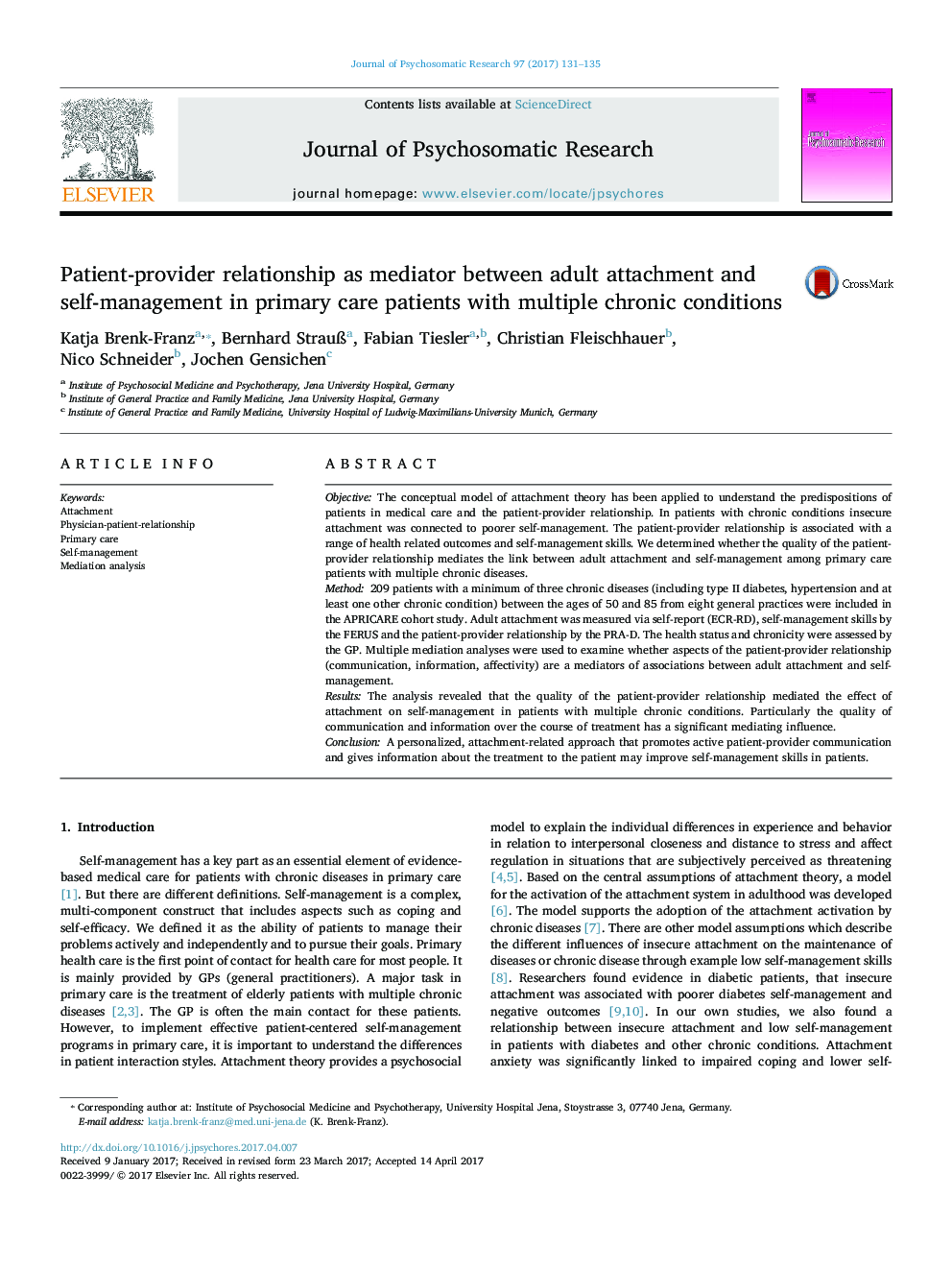| کد مقاله | کد نشریه | سال انتشار | مقاله انگلیسی | نسخه تمام متن |
|---|---|---|---|---|
| 5045991 | 1475898 | 2017 | 5 صفحه PDF | دانلود رایگان |
- Adult attachment is associated with self-management of patients with chronic conditions.
- The quality of the patient-provider relationship mediated the link between adult attachment and self-management.
- Particularly the quality of communication and information over the course of treatment has a significant mediating influence.
- An active communication and gives information about the treatment to the patient may improve self-management skills.
ObjectiveThe conceptual model of attachment theory has been applied to understand the predispositions of patients in medical care and the patient-provider relationship. In patients with chronic conditions insecure attachment was connected to poorer self-management. The patient-provider relationship is associated with a range of health related outcomes and self-management skills. We determined whether the quality of the patient-provider relationship mediates the link between adult attachment and self-management among primary care patients with multiple chronic diseases.Method209 patients with a minimum of three chronic diseases (including type II diabetes, hypertension and at least one other chronic condition) between the ages of 50 and 85 from eight general practices were included in the APRICARE cohort study. Adult attachment was measured via self-report (ECR-RD), self-management skills by the FERUS and the patient-provider relationship by the PRA-D. The health status and chronicity were assessed by the GP. Multiple mediation analyses were used to examine whether aspects of the patient-provider relationship (communication, information, affectivity) are a mediators of associations between adult attachment and self-management.ResultsThe analysis revealed that the quality of the patient-provider relationship mediated the effect of attachment on self-management in patients with multiple chronic conditions. Particularly the quality of communication and information over the course of treatment has a significant mediating influence.ConclusionA personalized, attachment-related approach that promotes active patient-provider communication and gives information about the treatment to the patient may improve self-management skills in patients.
Journal: Journal of Psychosomatic Research - Volume 97, June 2017, Pages 131-135
